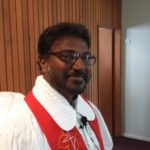Jesus Christ: he’s the real thing. John 4:5-42 The older I get, the more nostalgic I become. If I hear a song from the 70’s or the 80’s, I’m taking right back to the context in which I used to listen to that music. Recently I went to ACMI, (the Australian Centre for the Moving Image) in Federation Square. It was part of my resolution to do all the things I had never done in Melbourne. I absolutely loved it, and could have spent all day watching excerpts from the TV shows that I watched as a child. And with the shows went the ads. And there’s one company that I think does it better than most-Coca Cola. This company has been masterful in the way that it has marketing Coke. The formula incorporates young, vibrant people, indulging in exciting activities, complete with Coke in hand. There’s no doubt. The hype that surrounds Coca-Cola makes the drink out to be something that has the power to change lives. And the promise is that if you drink Coke then you’ll have a rich and wonderful experience of life with gorgeous, popular people right at the centre of the crowd. There’s a quasi-religious dimension to it.
This company has been masterful in the way that it has marketing Coke. The formula incorporates young, vibrant people, indulging in exciting activities, complete with Coke in hand. There’s no doubt. The hype that surrounds Coca-Cola makes the drink out to be something that has the power to change lives. And the promise is that if you drink Coke then you’ll have a rich and wonderful experience of life with gorgeous, popular people right at the centre of the crowd. There’s a quasi-religious dimension to it.
It’s possible to substitute the word ‘God’ for ‘Coke’ in some of the slogans, and come up with an entirely legitimate statement. “Things go better with God.†“God adds life.†And my favourite one, which I used to have as a sticker inside my childhood Bible: “Jesus Christ; he’s the real thing.†Coke promises big things, but delivers little. It does quench thirst, but only to a point. And sadly, I’ve never found the consumption of CocaCola adding to the quality of my lifestyle, or acting as the elixir of youth. But Jesus is a different matter altogether. He truly is the real thing. The living water, in fact, as the woman at the well discovered to her amazement that hot afternoon. She was there for one thing only; to draw some refreshing water from the deep, cool well. And ostensibly, that’s why Jesus was there too. He had been walking all day in the heat, and simply needed a drink.
This story begins at the physical level. Both Jesus and the woman need water because of their biology. But Jesus takes this starting point and takes this woman down the path to a full revelation of his identity as the Messiah. In the process, he gently uncovers her ignorance and her needs. But first of all, we should be amazed that the conversation ever took place. Jesus was breaking convention on two points. There was great racial hatred between Jews and Samaritans. Most Jews travelling between Judea and Galilee would bypass Samaria completely, even though it was the most direct route. But Jesus, as always, took the road less travelled.
Secondly, speaking with a woman who was not an immediate relative just did not happen. It’s in response to the woman querying him about this that Jesus moves the conversation from the physical to the spiritual. “If you knew the generosity of God and who I am, you would be asking me for a drink, and I would give you fresh, living water.†Living water. It sounds appealing. But to start with, Jesus has no bucket. Is Jesus claiming some source of water better than this well dug by Jacob himself? Jesus elaborates. “Everyone who drinks this water will get thirsty again and again. Anyone who drinks the water I will give will never thirst ever. The water I give will be an artesian spring within, gushing fountains of endless life.†Now that sounds better. No more trips in the heat of the day to replenish the supply of water.
Jesus and the Samaritan woman are simply talking past one another. She’s stuck on the physical level. Jesus wants to lead her deeper. Jesus asks her to call her husband. And with that question, he breaks her life wide open. Her answer that she has no husband is greeted by Jesus with the remarkable revelation about her personal life. It’s a trail of emotional pain, and her current living arrangements transgress God’s law. It’s a life in need of God’s healing touch. That’s exactly why she’s here, in the middle of the day. Her shame keeps away from those who judge her for what she’s done. Better to avoid them altogether.
So this woman knows that Jesus is a prophet. Yet she’s not certain what Jesus wants to do with this information. Is he too going to shame her? Perhaps it’s best to shift this conversation away from the personal. Jesus, what do you say about the controversy between Jews and Samaritans about the proper place of worship.
But Jesus doesn’t want to play religious games. His concern is for this woman’s heart. In this encounter, he has been moving her through a process of spiritual discovery. The place of worship is immaterial. It’s what’s in the heart that matters. “But the hour is coming, and is now here, when true worshippers will worship the Father in spirit and truth.†With majestic simplicity, Jesus short circuits the discussion. He simply announces, “I am he, the one who is speaking to you.†“I am the one who offers you living water. I am the one who connects you to the realm of the spiritual, to the life of God. I am the one that can satisfy your thirst for something substantial, meaningful, foundational, in your life.â€
We all thirst. We’re desperate for acceptance from others. We want to feel that our lives are meaningful. We look for many ways to satisfy this thirst. From the woman at the well’s history, we might conclude that she tried to find meaning and security in her relationships with men. People thirst for all sorts of things that they think might provide them with meaning; a healthy bank balance, house, possessions, career, a degree at the right university. Pick your security blanket. But deep down we also know that “moth and rust destroy, and… thieves break in and steal.†And what then?
The mythology of the CocaCola ads themselves point to our desperate thirst, which cannot be quenched by any physical or human source. Our ultimate problem is spiritual. We need something to believe in that will go the distance. Jesus says to us, “If anyone is thirsty, let him come to me and drink. Whoever believes in me, as the Scripture has said, streams of living water will flow from within him.â€
Jesus says to us: “Unless you are trying to get your spiritual thirst quenched through me and not through these other things, unless you see that the solution must come inside rather than just pass by outside, that [whatever] else you worship will abandon you in the end.†The early church saw in this story a reference to the blessings poured out in baptism. This story was painted on the walls of the catacombs, a place symbolizing death, yet the place where new life in Jesus was proclaimed. So Jesus can say “The water I give…will become…a spring of water gushing up to eternal life.†This is the same Jesus who on the cross cried out in agony, “I thirst,†and who suffered the loss of his relationship with his Father so that he could endure God’s judgement on a broken and disobedient creation. There was no relief for his thirst, only the agony of separation from the true source of life, his Father. Now, through his cross and resurrection, Jesus has come to us and filled us with the life of God through the Holy Spirit.
This is the Spirit of God, as Jesus explains it: “Whoever believes in me, as Scripture has said, rivers of living water will flow from within them.†This is the well that will never run dry, from which we can draw hope no matter how hot it gets, no matter how shameful our past, or how broken our present, when life doesn’t play out for us like a happy, smiling Coca-cola ad. The woman at the well suddenly leaves Jesus. Her water jar is left standing there. The thing she came for is not important any more. She needs to tell others what she’s just experienced. “The spring of water gushing up to eternal life†is overflowing, and is now quenching the thirst of her friends and neighbours.
She is the first missionary in John’s gospel. So much so that the people of that place request Jesus to stay a few days. They too, want to drink from the living water. How and where is God calling you to share this same living water? Let God continually refresh you with living water, the gift of his Son, Jesus Christ. Drink deeply of him, as you are doing today in worship, through his word and holy meal, and in your own prayer and Scripture reading time. Don’t go looking for other things to provide meaning and significance, from Coca-Cola upwards. You have all you need in Christ to live an abundant life, overflowing in praise to God. And see how that praise impacts those around you, all the thirsty people. Remember those Coke slogans. Placing God as the subject God makes much more sense. “Life goes better with God.†“God adds life.†And my favourite one. “Jesus Christ; he’s the real thing.†Amen.
The peace of God, which surpasses all human understanding, guard our hearts and minds in Christ Jesus. Amen
Pastor AndrewBrook


